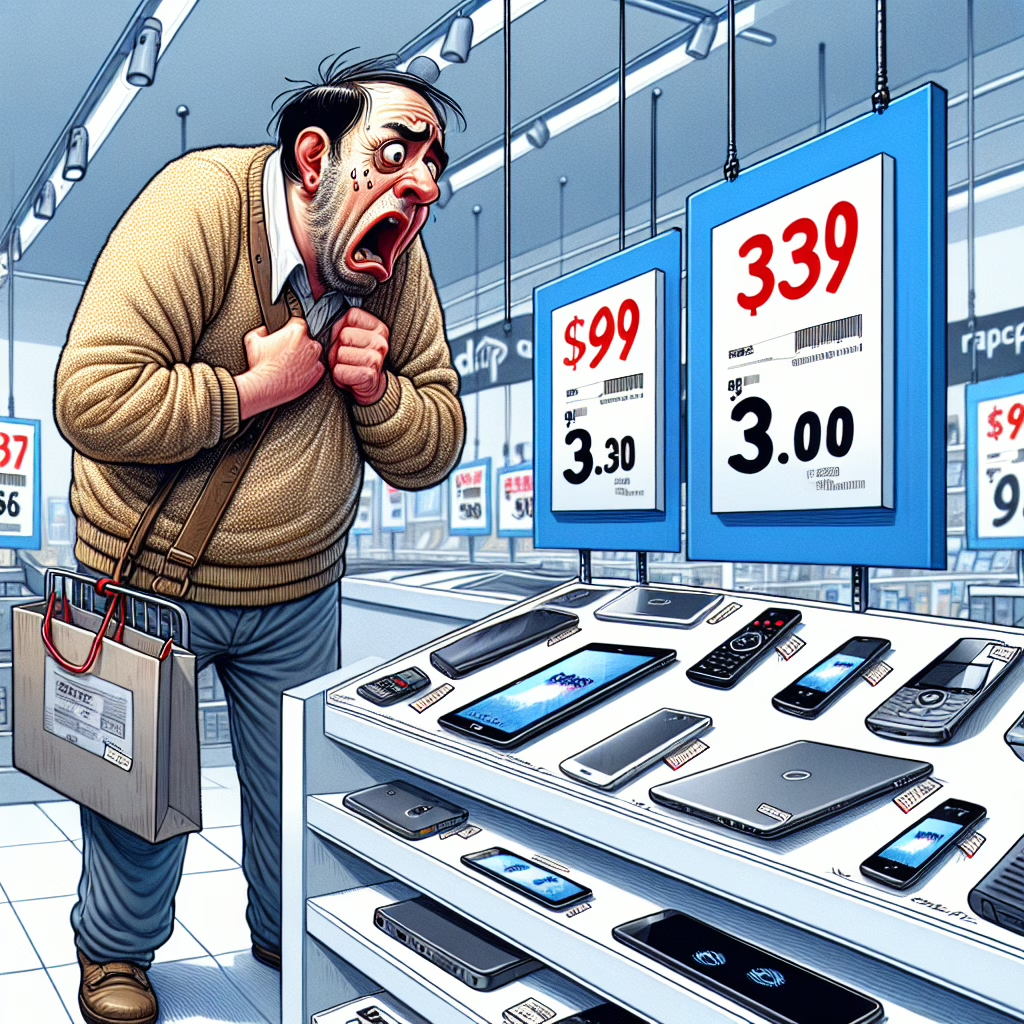Ah, tariffs! The economic equivalent of that friend who insists on bringing their own food to a potluck. You know, the one who shows up with a kale salad while the rest of us are just trying to enjoy some good old-fashioned pizza? In 2025, President Trump’s tariffs on consumer electronics could serve as a reminder that while some things are meant to be shared, your wallet might not agree.
What Are These Tariffs and Why Should You Care?
In simple terms, tariffs are taxes on imported goods. And guess what? Those taxes don’t just vanish into thin air; they often land squarely on our bank accounts. Thanks to the ongoing trade tensions, many of your favorite gadgets—think smartphones, laptops, and even wearables—might be sporting new price tags that could make you gasp.
The tariffs aim to encourage domestic production by making foreign products pricier. But as we all know, this is a bit like trying to motivate your cat to stop knocking over your plants by placing their litter box right next to them. Spoiler alert: it rarely works. So how does this play out in the world of consumer electronics?
The Price Tag Dilemma: Your Wallet Will Feel It
Imagine walking into your favorite electronics store only to find that the latest smartphone now costs as much as a small used car. Yes, the tariffs on consumer electronics have created quite the conundrum for tech enthusiasts everywhere. Many manufacturers have passed these extra costs directly onto consumers.
For instance, tech giants like Apple and Samsung might find themselves in a tight spot. They can either absorb the costs (which is as likely as my cat starting a yoga class) or raise prices. Spoiler alert: we all know which option they typically choose.
How Tariffs Affect Your Favorite Gadgets
Let’s take a closer look at what this means for those beloved devices:
- Smartphones: Tariffs could add hundreds of dollars to the price of new models. So that shiny new phone you’ve been eyeing? It might come with an extra dose of financial anxiety.
- Laptops: Need a new laptop for work or gaming? Brace yourself for sticker shock! Prices may climb higher than your last attempt at baking bread during quarantine.
- Wearables: Fitness trackers and smartwatches could also see price hikes. Now you’ll have to weigh whether tracking your steps is worth shelling out more cash.
The impact doesn’t stop there. The entire ecosystem of accessories—from cases to chargers—could also be affected. If you’ve ever been tempted by a fancy phone case, prepare for potential heartbreak!
The Bright Side: Innovation and Adaptation
Now, before we all pull our hair out over rising prices, let’s take a moment to consider the silver lining. Companies often respond to market changes with innovation. This means that while our wallets might feel lighter today, we could see some exciting developments in technology soon.
As businesses adapt to higher costs, they may invest more in research and development. We could end up with smarter gadgets that do everything from brewing coffee to folding our laundry (okay, maybe that’s pushing it). But hey, one can dream!
Your Role in All This: Consumer Awareness
So what can you do about these tariffs? The answer is simple: stay informed! Understanding how tariffs affect consumer electronics will empower you to make better purchasing decisions.
If you’re eyeing a new gadget, consider waiting for sales or exploring alternatives that offer similar features at lower prices. Remember that sometimes older models still pack a punch without breaking the bank.
Final Thoughts: Share Your Opinions!
In conclusion, while Trump’s tariffs on consumer electronics may lead to some frustrating price increases, it’s essential to remain optimistic about innovation and adaptability in the tech industry. Let’s embrace our inner savvy consumers and navigate these changes with humor—and maybe a little bit of planning!
What are your thoughts on the impact of tariffs on your favorite gadgets? Join the conversation and share your experiences in the comments below!
A big thanks to The Verge for their original article that inspired this discussion!

